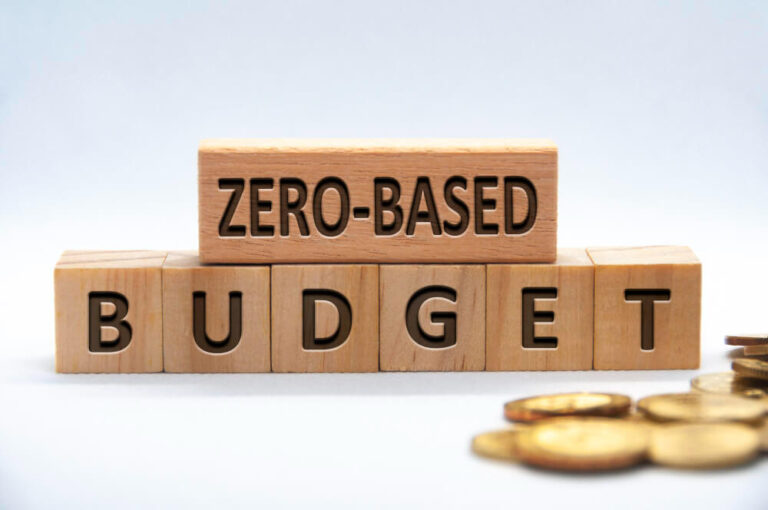Are you struggling to keep your finances in check? Look no further! In this article, we will guide you through the process of creating a budget, step by step.
Budgeting is a crucial skill that allows you to take control of your financial situation and achieve your financial goals. Whether you want to save for a dream vacation, pay off debt, or simply gain a better understanding of where your money is going, this guide has got you covered.
We will start by assessing your current financial situation, then move on to setting realistic goals. Next, we will help you identify your income and expenses, so you can allocate your funds effectively.
Throughout the process, we will also show you how to track your progress and make adjustments as needed. So, let’s dive in and get started on your path to financial success!
Assessing Your Financial Situation
Now it is time to take a good, hard look at your finances and figure out where you stand. Assessing your financial situation is the first step in creating a budget. Start by gathering all your financial documents, such as bank statements, credit card bills, and pay stubs.
Take note of your income sources and the amount of money you bring in each month. Next, list all your expenses, including fixed costs like rent or mortgage payments, utilities, and insurance, as well as variable expenses like groceries, entertainment, and transportation.
Review your spending habits and identify areas where you can cut back. This assessment will give you a clear understanding of your financial health and help you determine how much you can allocate towards different categories in your budget.
Setting Financial Goals
To start, let’s focus on establishing your financial goals. Setting clear financial goals is an essential step in creating a budget. These goals will guide your spending and saving habits, helping you stay focused and motivated.
When setting financial goals, it’s important to be specific and realistic. Consider both short-term and long-term goals, such as paying off debt, saving for a down payment on a house, or building an emergency fund.
Break down these goals into smaller, manageable steps that you can achieve over time. Additionally, prioritize your goals based on their importance and urgency. This will help you allocate your resources effectively and make progress towards achieving your financial aspirations. Remember, setting financial goals is the foundation for a successful budgeting journey.
Identifying Income and Expenses
Start by identifying your sources of income and all of your expenses, including both fixed and variable costs. This step is crucial in creating an accurate budget. Begin by listing all the income you receive regularly, such as salaries, wages, and any additional sources of money.
It’s important to include all income streams to have a comprehensive understanding of your financial situation. Next, gather all your expense information. Categorize your expenses into fixed costs, which remain constant every month, such as rent or mortgage payments, and variable costs, which fluctuate, like groceries or entertainment.
Be thorough in this process, as it will help you create a realistic budget. By identifying your income and expenses, you will have a solid foundation for creating your budget and managing your finances effectively.
Allocating Funds and Creating Categories
After identifying your income and expenses, allocate your funds and create categories to effectively manage your finances. This step is crucial in creating a budget that aligns with your financial goals. Start by determining the percentage of your income that you want to allocate towards different categories such as housing, transportation, groceries, and entertainment.
This will help you prioritize your spending and ensure that you are not overspending in any particular area. Additionally, creating categories allows you to track your expenses more easily and identify areas where you can cut back if needed. It is important to be realistic and flexible when allocating funds, as your financial situation may change over time. Regularly reviewing and adjusting your budget categories will help you stay on track with your financial goals.
Tracking Progress and Making Adjustments
Keep a close eye on your spending and regularly review and adjust your budget to ensure you are making progress towards your financial goals. Tracking your expenses is crucial in understanding where your money is going and identifying areas where you can cut back or reallocate funds. Use a budgeting tool or app to easily track your expenses and categorize them accordingly.
Compare your actual spending to the budgeted amounts and make adjustments as needed. If you consistently overspend in certain categories, consider reducing the allocated amount for those categories or finding ways to save in other areas.
On the other hand, if you consistently have leftover funds in certain categories, you may want to increase the allocations or consider saving that extra money. Regularly reviewing and adjusting your budget will help you stay on track and achieve your financial objectives.
Frequently Asked Questions
How can I negotiate lower interest rates on my existing debts?
To negotiate lower interest rates on existing debts, start by contacting your creditors and explaining your financial situation. Offer a repayment plan and negotiate for lower rates. Consider seeking assistance from a credit counseling agency for further guidance.
What are some effective strategies for reducing discretionary spending?
Some effective strategies for reducing discretionary spending include tracking your expenses, setting a budget, prioritizing needs over wants, avoiding impulse purchases, and finding cheaper alternatives for entertainment and leisure activities.
Are there any tax deductions or credits that I should be aware of when creating a budget?
Yes, there are several tax deductions and credits that you should be aware of when creating a budget. These include deductions for mortgage interest, student loan interest, and credits for childcare expenses and education expenses.
How can I increase my income to meet my financial goals?
To increase your income and meet financial goals, consider taking on a side job, freelancing, or starting a small business. Additionally, you can seek out promotions, negotiate for higher pay, or acquire new skills for higher-paying job opportunities.
What are some common mistakes to avoid when tracking progress and making adjustments to my budget?
Common mistakes to avoid when tracking progress and making adjustments to your budget include not tracking expenses consistently, failing to review and update your budget regularly, and underestimating or ignoring unexpected expenses.
Conclusion
Creating and sticking to a budget is essential for achieving financial stability. By assessing your financial situation, setting goals, and identifying income and expenses, you can gain a clear understanding of your financial health. Allocating funds and creating categories allows you to prioritize your spending and savings. Finally, tracking your progress and making adjustments ensures that your budget remains effective and adaptable. With these steps, you can take control of your finances and work towards your financial goals.








